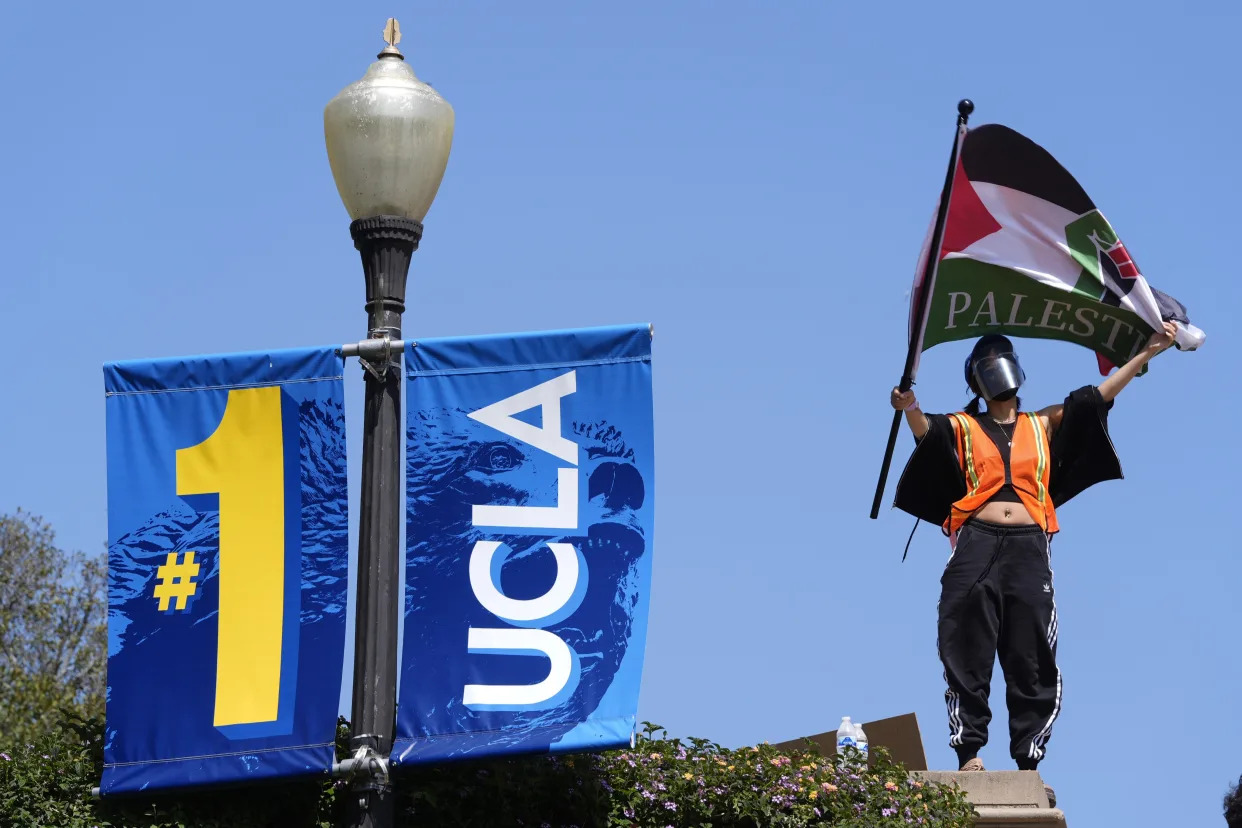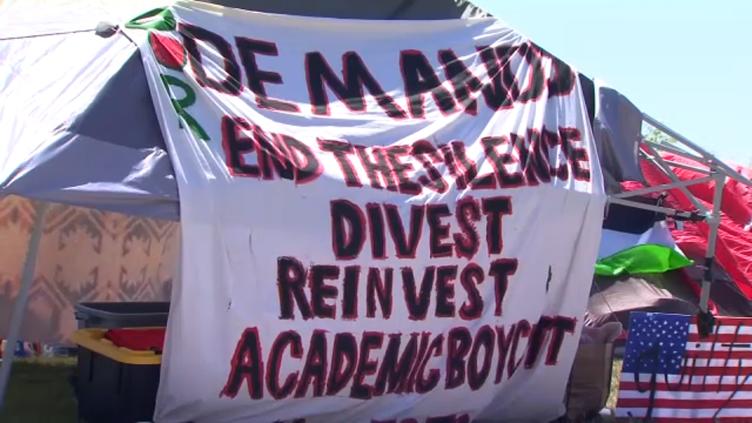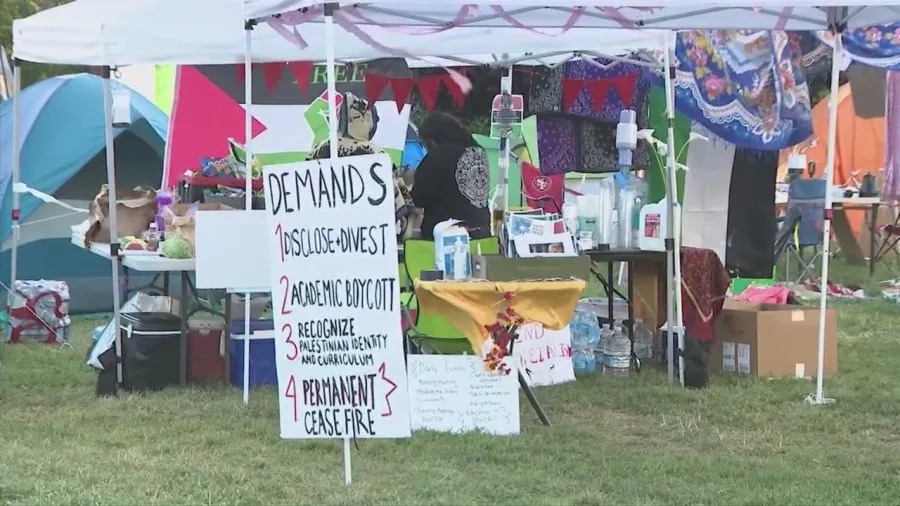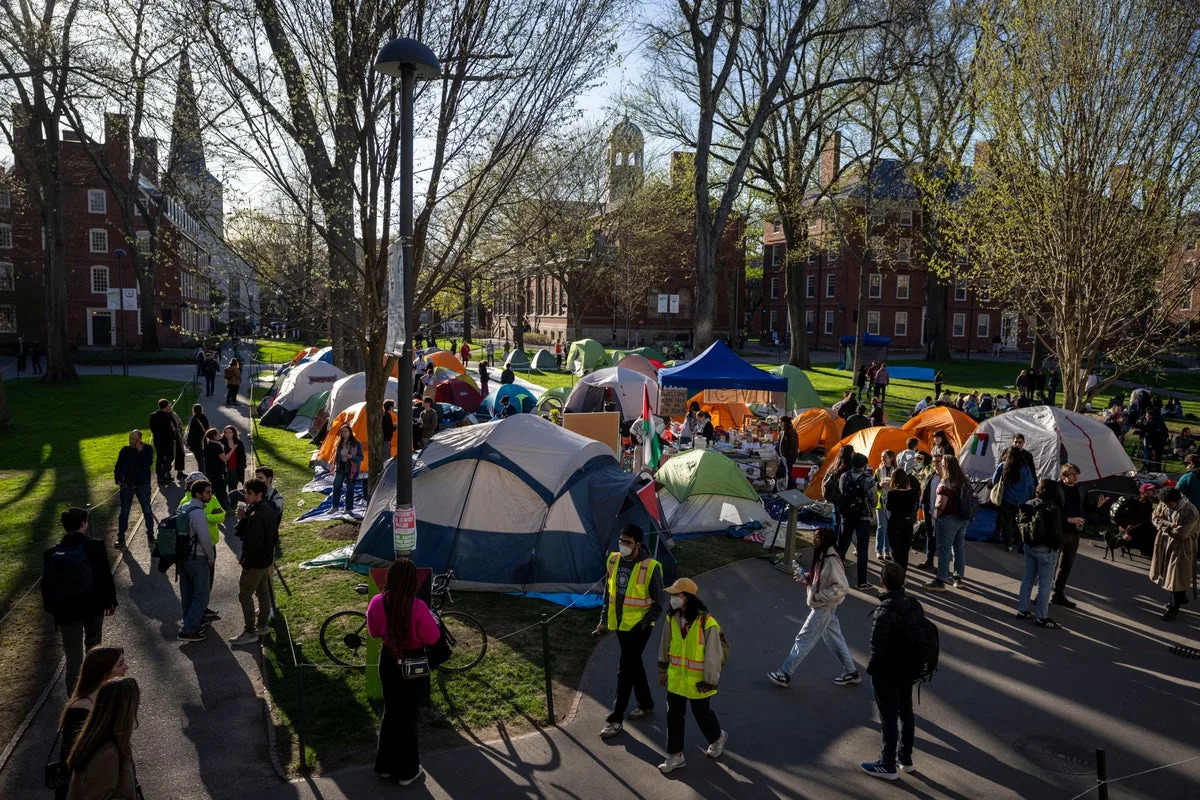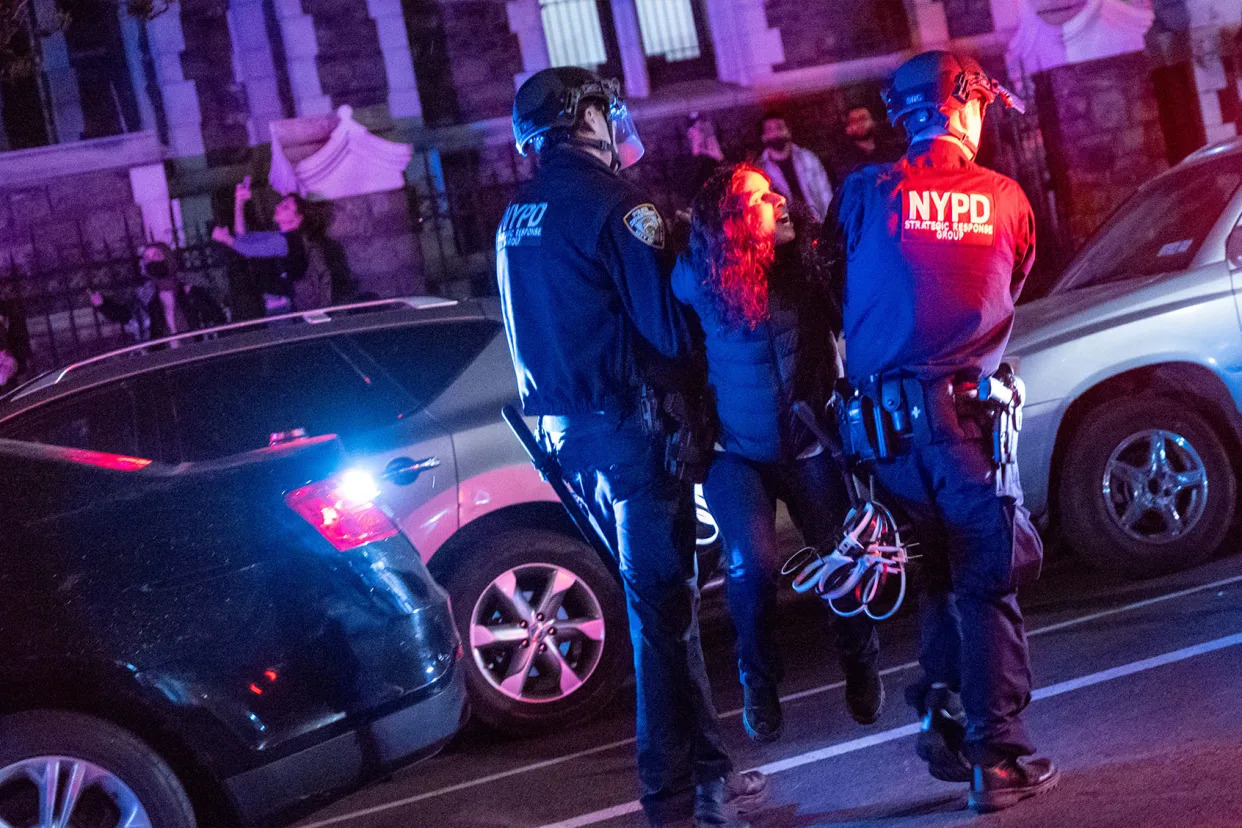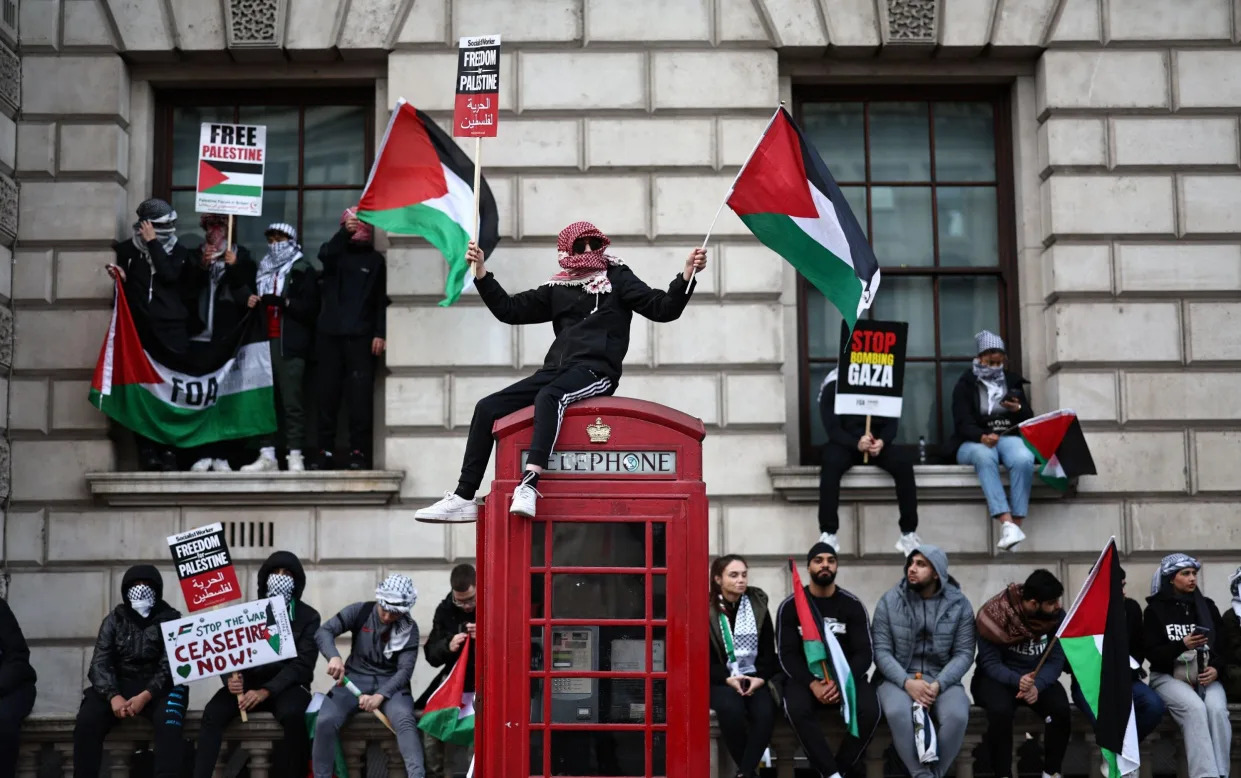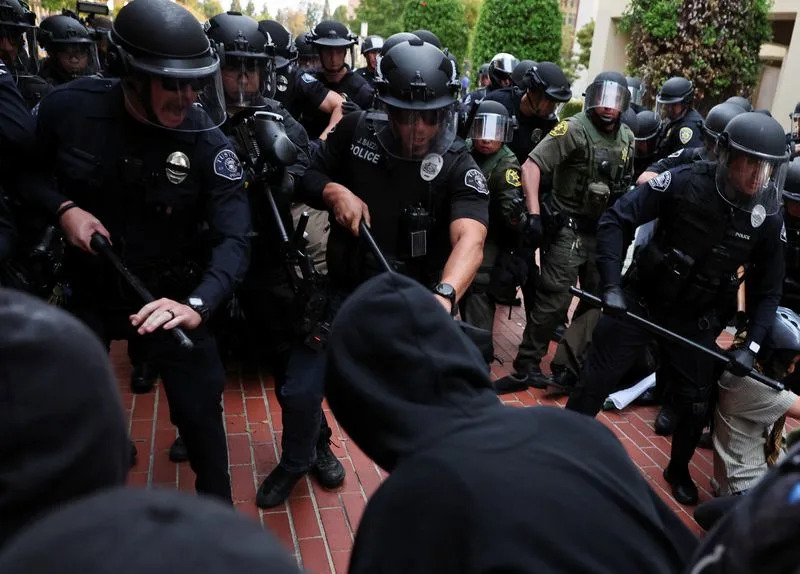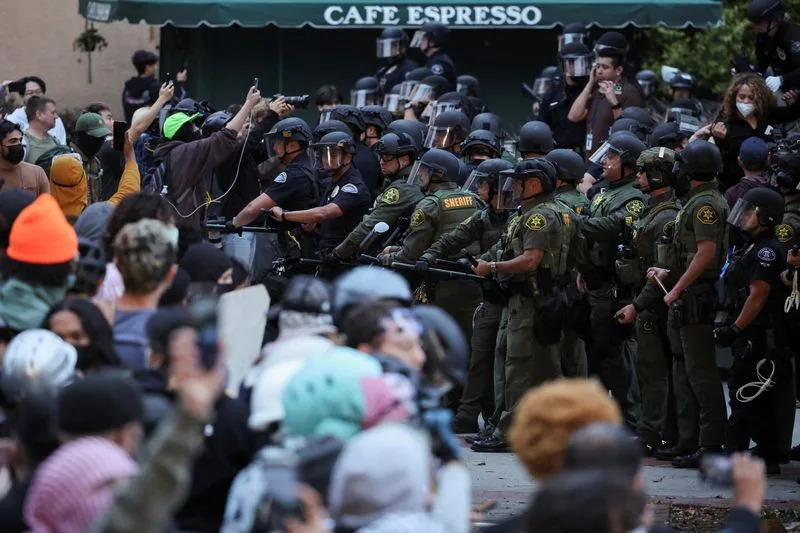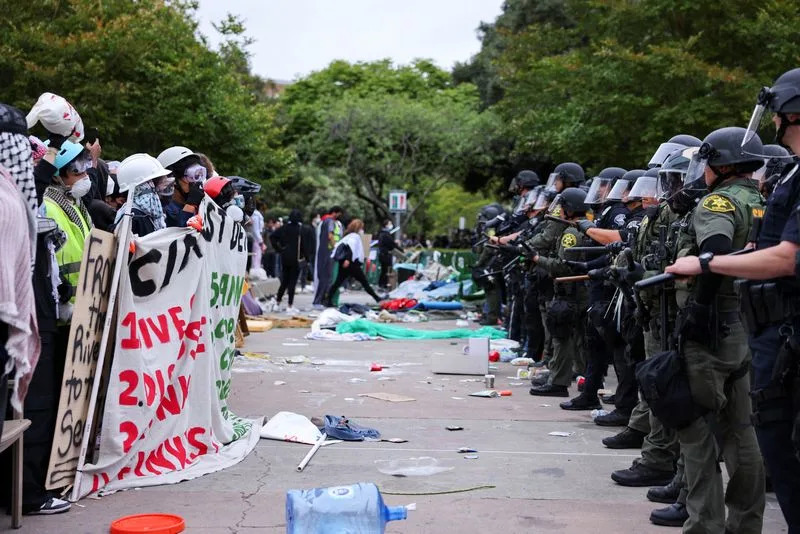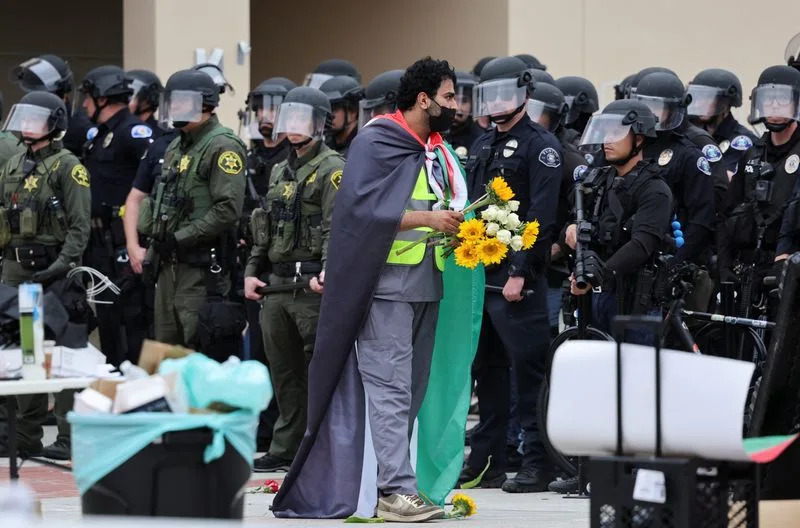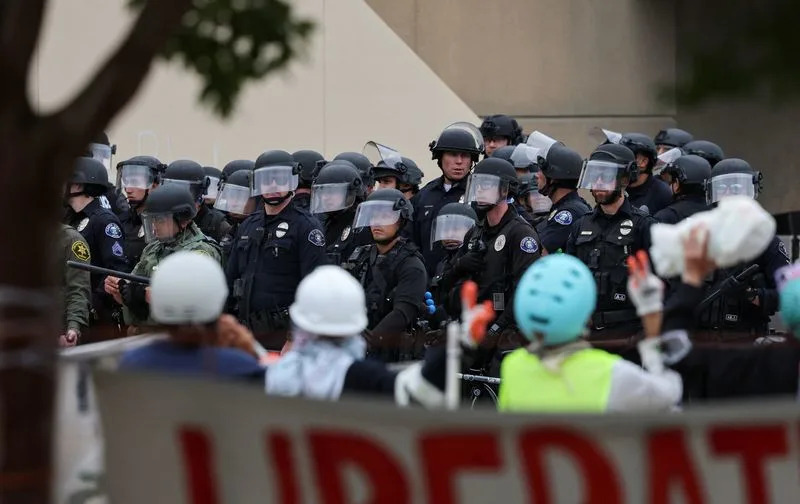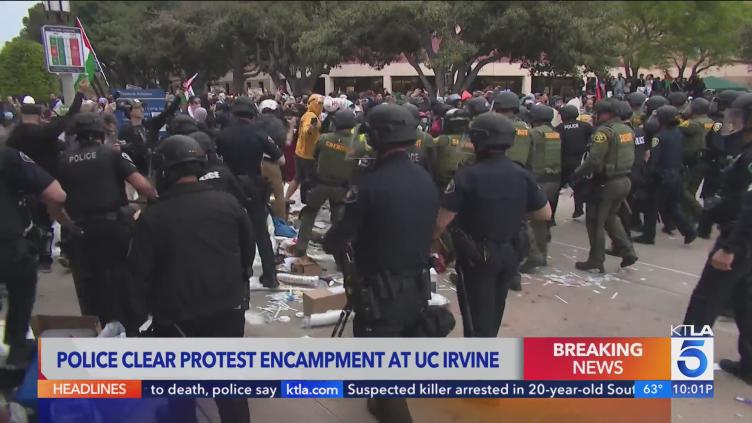College students across the U.S. have been arrested and threatened with suspension over pro-Palestinian protests.
But what legal rights do they have?
Katie Mather
·Internet Culture Reporter
Wed, May 15, 2024
Columbia law school graduates carry out a silent pro-Palestinian protest during a graduation ceremony on May 13. (Fatih Akta/Anadolu via Getty Images)
After nearly 3,000 people were arrested at protests against the war in Gaza at 57 colleges and universities across the United States, hundreds of students were threatened with suspension or even expulsion, in addition to potential criminal charges being filed against them.
As the academic year comes to an end, student protesters have continued demonstrating during graduation ceremonies. At Arizona State University, students have filed lawsuits against the school, claiming that their suspensions violated their right of free speech.
“Students across the country still face severe consequences, including potential suspensions, evictions, expulsions and criminal prosecutions” according to the Appeal, a nonprofit news organization. The group reached out to hundreds of prosecutors and city attorneys to learn whether criminal cases will be filed against demonstrators.
Out of the over 40 city attorney offices that responded to the Appeal, only four prosecutors confirmed they would not charge people for peacefully protesting — in Bernalillo County, N.M., where the University of New Mexico’s Albuquerque campus is; in Cook County, Ill., where the Art Institute of Chicago is; in Ithaca, N.Y., where Cornell University is; and in Ulster County, N.Y., where the State University of New York is.
In other cities, protesters still face serious criminal charges. In New Orleans three people were charged with battery, committing “hate crimes” against police and resisting an officer with force. The third charge could carry a one- to three-year prison sentence.
In terms of academic penalties, some schools in California, like the University of Southern California and Cal Poly, Humboldt, have implemented interim suspensions, a punishment usually reserved for “serious and imminently dangerous misconduct,” according to the Los Angeles Times. It’s not clear how many students have been formally suspended for participating in protests, because at some schools, like at the University of California, San Diego, students can appeal their suspensions and have them overturned.
Do students have a claim to the First Amendment following the campus protests? Yahoo News spoke to legal experts to break down the rights of students.
Public school campuses are protected as public spaces under the First Amendment
Lee Rowland, the executive director of the National Coalition Against Censorship (NCAC), an activist group dedicated to supporting free speech, told Yahoo News that the First Amendment protects people from government censorship.
“You have a right to engage in protected speech in areas where you’re allowed to be,” Rowland said, referring to public spaces. “The First Amendment fully protects you from censorship by the government, which includes public schools — whether they’re high schools or colleges or universities.”
Robert Kleinfeldt, a senior counsel at New York City-based law firm Romano Law, emphasized that these rights are “strongest” in what is known as “traditional public forums,” such as streets, sidewalks and parks.
The protection isn’t limited to just students — it’s any participant in a public campus protest.
Private school campuses have different rules
A private school on the other hand, like Columbia, has more “ability to control” who is on its property, which sets up trespassing violations to those who don’t abide by the school’s rules, Rowland said.
“A private property owner can set [rules] and say, ‘Everyone here is trespassing’ and they have the right to make a legal complaint about trespassing or to call in the police,” she explained. “It would not be a First Amendment violation for the school to shut down an encampment — it doesn’t mean, however, that it is the correct or wise thing to do for free expression more broadly.”
What type of protesting isn’t protected by the First Amendment?
Violence is not protected by the First Amendment. Some forms of civil disobedience aren’t protected either, such as occupying a building or staying overnight in a place that has a closing time.
“Police generally cannot break up a demonstration or gathering unless there is … [an] immediate threat to public safety,” Kleinfeldt said.
There are also “time, place and manner” restrictions, which are laws that allow institutions of any kind to set general limits, such as start and end times for protests or capping the number of allowed demonstrators in one area.
Rowland said that these laws make it constitutional for a school to call the police if protesters violate these restrictions. It becomes unconstitutional if the school calls the police in response to the message behind the protests.
Protesters who get arrested need to have known ahead of time they were violating the law
Private schools are allowed to come up with new rules that make it constitutional for them to punish protesters who violate them, Rowland said.
For example, a school can decide that any student who participates in a walkout will be disciplined. The American Civil Liberties Union explained that for this example schools can enact new policies about missing classes, but they can’t punish students more harshly because of the message behind the walkout.
Rowland emphasizes that before anyone can be arrested or charged, they need to have known they were violating a law.
“What we often see are announcements from police to [protesters], something to the effect of, ‘This has been declared an unlawful assembly; you have 20 minutes to pack up,’” Rowland said. “That warning is usually given to ensure that if police decide to issue an arrest, there is some evidence that the people arrested knew that they were breaking some rule or law.”
